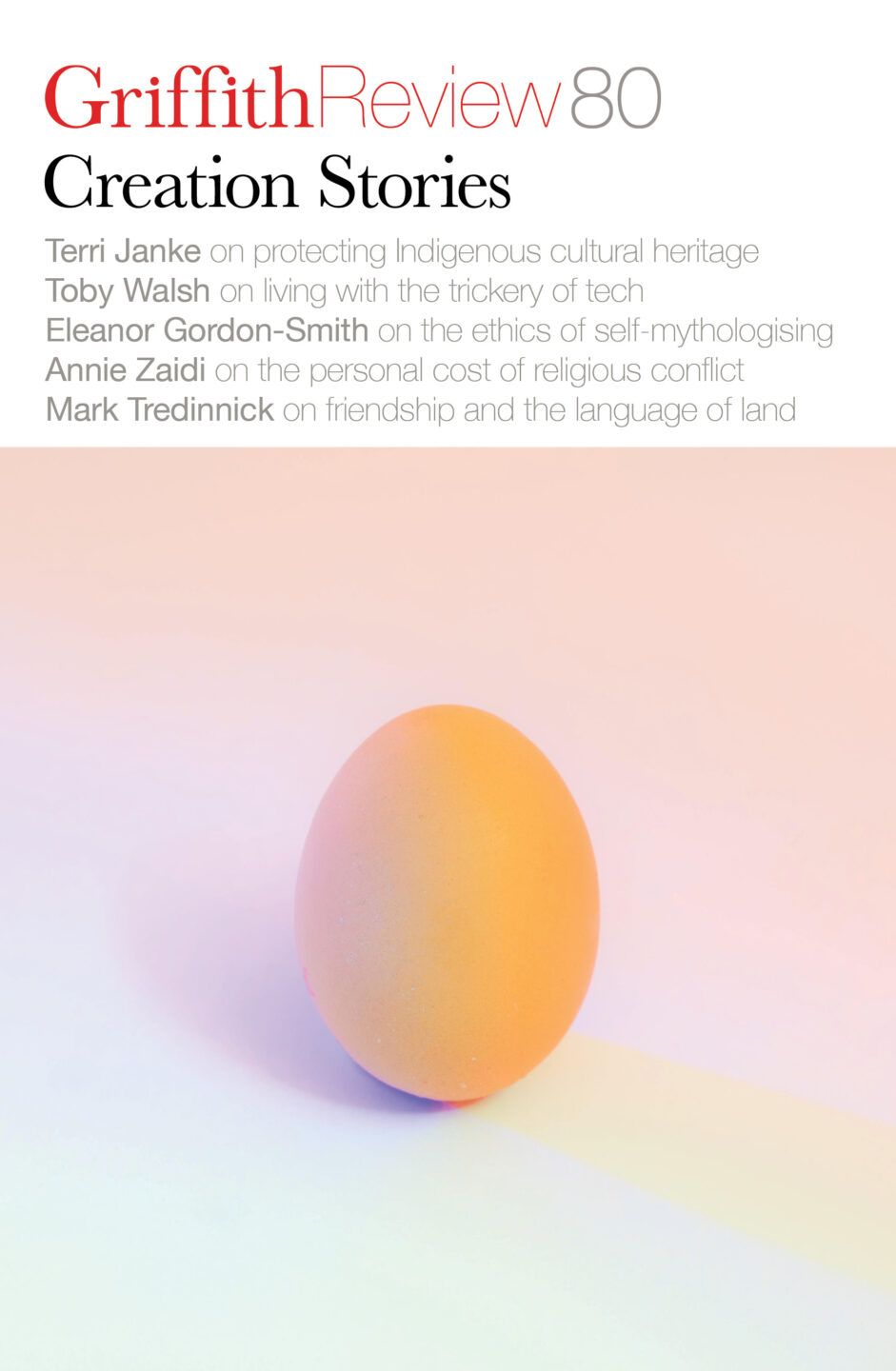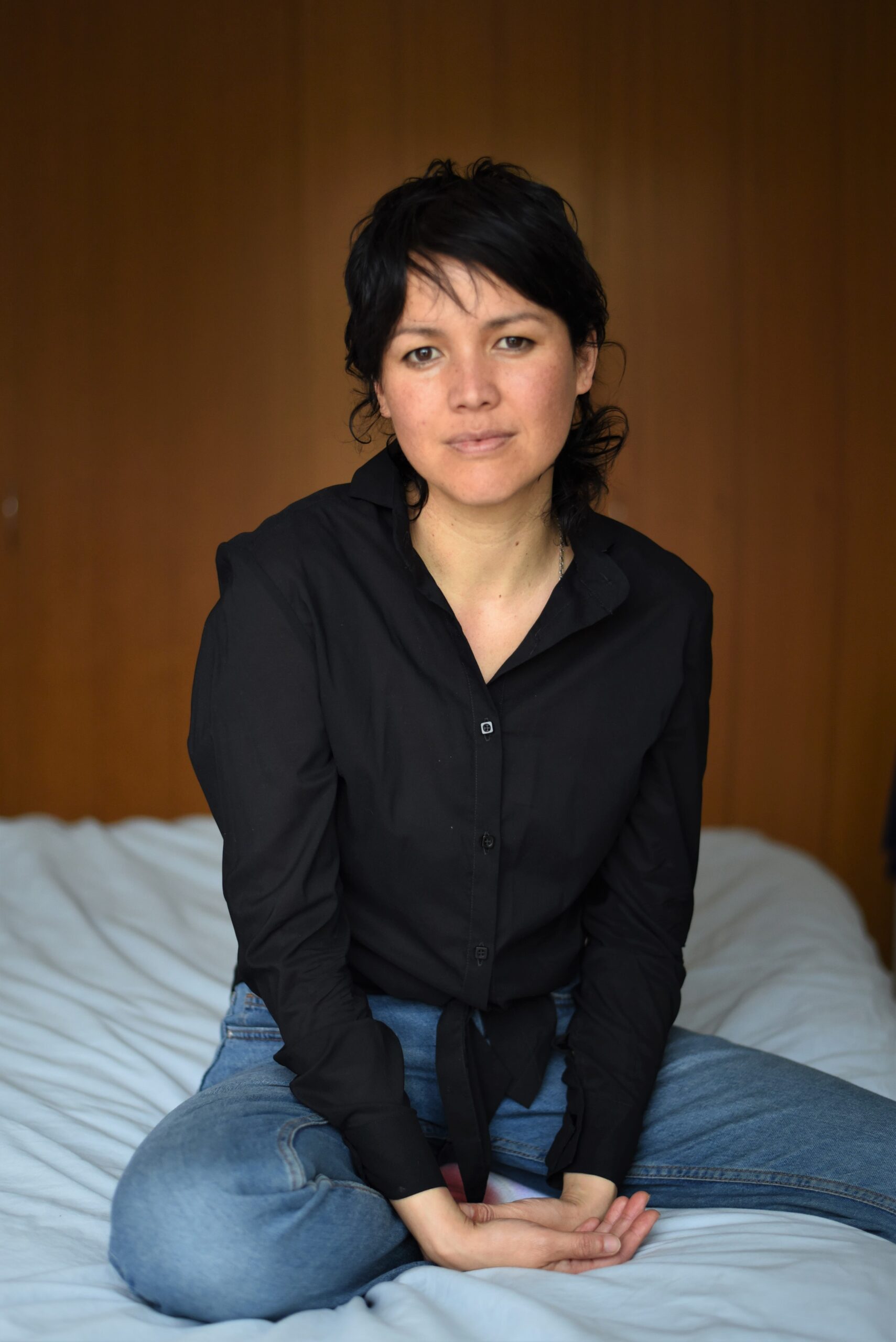Featured in

- Published 20230502
- ISBN: 978-1-922212-83-2
- Extent: 264pp
- Paperback (234 x 153mm), eBook


Already a subscriber? Sign in here
If you are an educator or student wishing to access content for study purposes please contact us at griffithreview@griffith.edu.au
Share article
About the author

Lucy Van
Lucy Van is a writer of both poetry and criticism. Her collection The Open (Cordite, 2021) was longlisted for the Stella Prize, shortlisted for the Mary Gilmore...
More from this edition

Medea – towards the end
PoetryShe wanted to confuse the staff and brings in a pebble from the garden as suggested, placing it into the pocket of the man in the next room.

Sad stories you are old enough to hear
Non-fictionThis year, a ‘news anchor’ raised a question about why Muslims participate in the garba when they don’t believe in idol worship. It’s a bit like saying people should not be allowed to put up a Christmas tree if they haven’t been baptised or taken the sacrament. Thousands of non-Catholics attend the feast of Mount Mary in Bandra. People of all faiths attend the Urs of the Sufi saint Khwaja Moinuddin Chishti in Ajmer and the Sufi saint Waris Ali Shah at Dewa Sharif. Hindu devotees going to the Ayyappa temple in Sabarimala also visit the Vavar mosque en route. That news anchor’s question poisons the breath of our country.

On undoing
Non-fictionI am forty before I visit Europe, still ignorant that a century before me my great-grandfather had walked those same cobblestones. That he had fought in a war that did not reward him with any meaningful welcome on his return home. Now that I know, I yearn to go back and breathe that air, knowing that William was there.